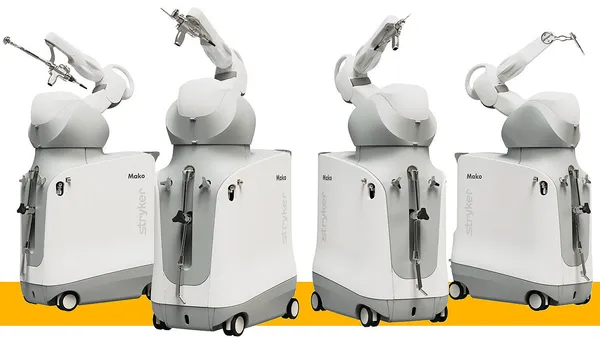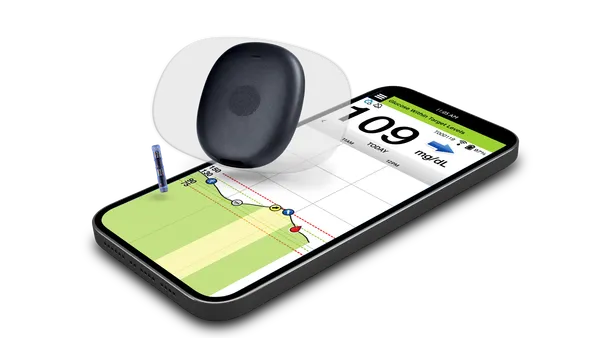Dive Brief:
- Microbot Medical has received 510(k) clearance for its Liberty Endovascular Robotic System, the company said Monday.
- The Food and Drug Administration clearance positions Microbot to start marketing the single-use, remotely operated robotic system for peripheral endovascular procedures.
- Siemens Healthineers launched a robotic system for peripheral vascular interventions in 2021 but withdrew from the market to focus on neurovascular procedures two years later.
Dive Insight:
Liberty features a video game-style controller that physicians use to remotely guide instruments through blood vessels. Microbot adopted a remotely operated design to reduce radiation exposure and physical strain on the physician.
The company has tried to improve on the maneuverability of rival systems, simplify setup and operation, and eliminate the need to exchange and use expensive surgical tools. Microbot has also designed the system to free facilities from the need to have extensive capital equipment requiring dedicated cath-lab rooms and staff.
Microbot reported data from a study of Liberty at three U.S. medical centers in April. The trial linked the device to a 92% relative reduction in radiation exposure. Microbot reported a 100% success in robotic navigation to the target and zero device-related adverse events.
CEO Harel Gadot said in a statement that Microbot will now “complete the final commercial activities that were contingent on marketing clearance.” The activities will position Microbot to “commence commercialization, penetrate the approximately 2.5 million annual U.S. peripheral vascular procedures and pursue entry into global markets,” Gadot said.
Microbot ended June with $4.1 million in cash and cash equivalents. The company subsequently secured a grant worth around $630,000. Microbot said it would use the funding to strengthen its manufacturing capabilities to support the commercialization of Liberty in the U.S.
The company is entering a space that once interested Siemens Healthineers. The company, then called Siemens Medical Solutions, acquired Corindus Vascular Robotics for approximately $1.1 billion in 2019 to take control of a robotic platform used in percutaneous coronary and vascular procedures.
Siemens Healthineers exited the robotic-assisted endovascular cardiology business in 2023, narrowing its focus to neurovascular interventions. Robocath launched a rival robotic platform, the R-One+, in Europe in 2023 but is yet to receive authorization in the U.S.













